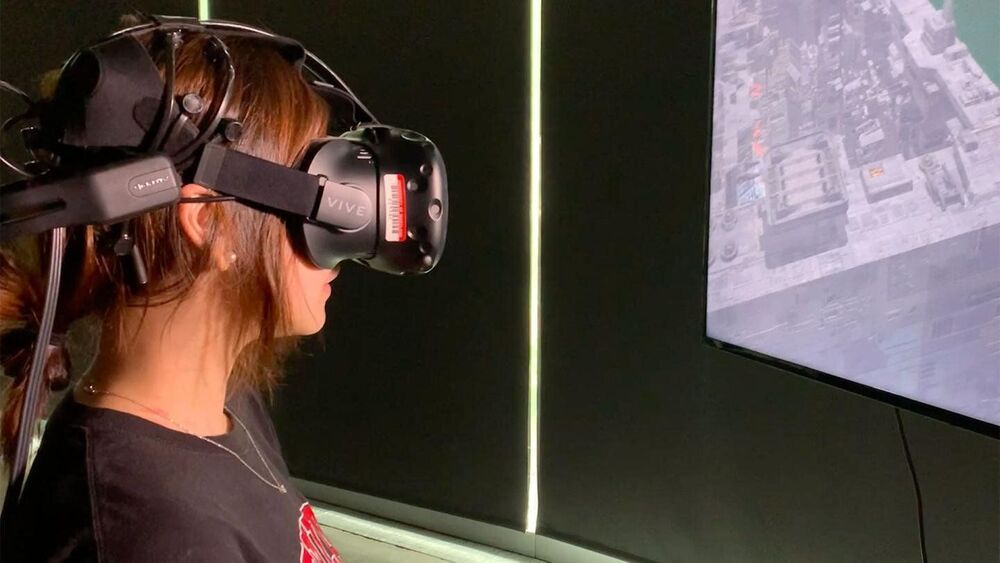If a virtual world has ever left you feeling nauseous or disorientated, you’re familiar with cybersickness, and you’re hardly alone. The intensity of virtual reality (VR)—whether that’s standing on the edge of a waterfall in Yosemite or engaging in tank combat with your friends—creates a stomach-churning challenge for 30–80% of users.
In a first-of-its kind study, researchers at the University of Maryland recorded VR users’ brain activity using electroencephalography (EEG) to better understand and work toward solutions to prevent cybersickness. The research was conducted by Eric Krokos, who received his Ph.D. in computer science in 2018, and Amitabh Varshney, a professor of computer science and dean of UMD’s College of Computer, Mathematical, and Natural Sciences.
Their study, “Quantifying VR cybersickness using EEG,” was recently published in the journal Virtual Reality.
